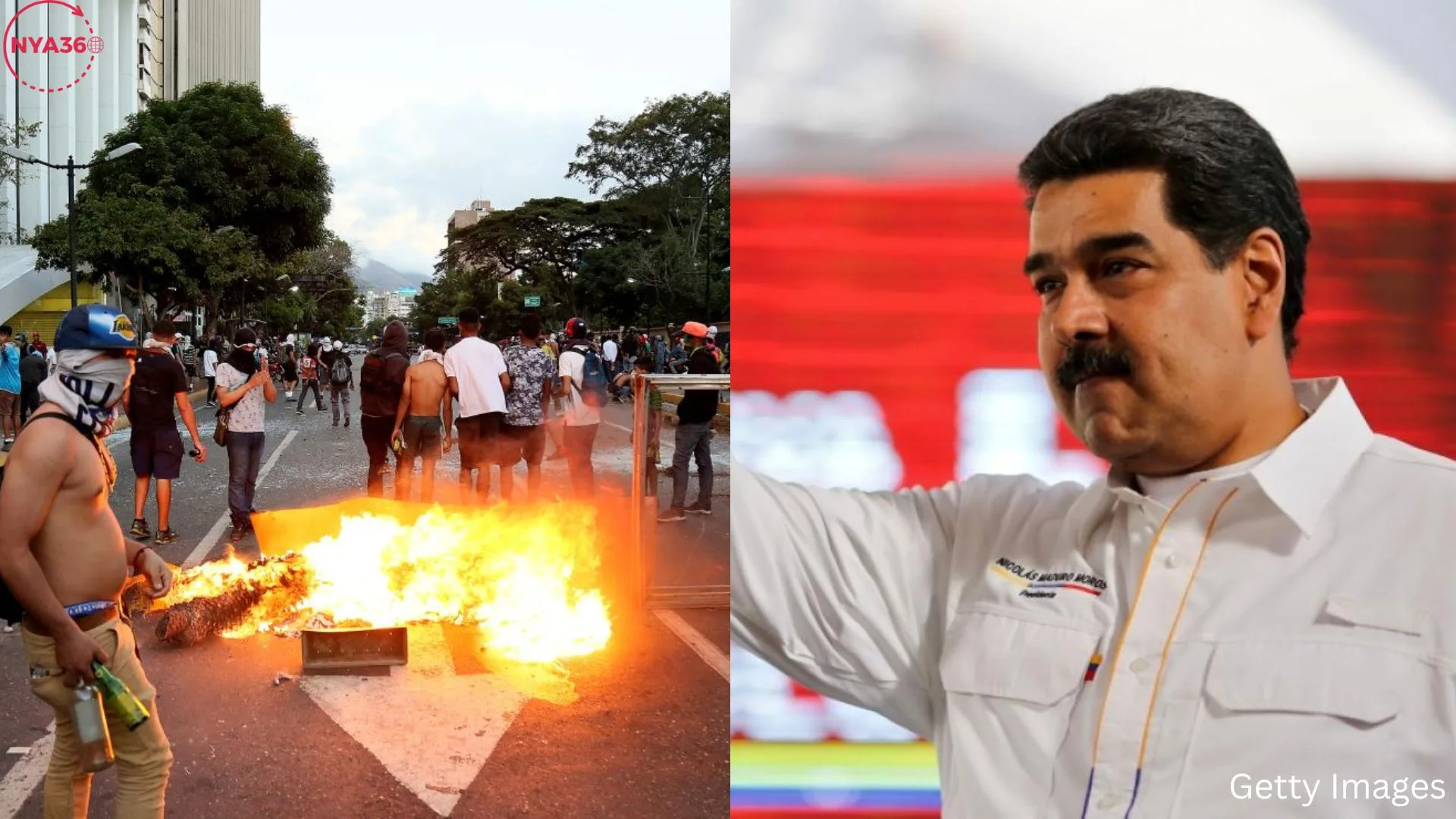Counter troops have successfully penetrated the barricade around President Nicolas Maduro’s mansion, marking a significant escalation in Venezuela’s political crisis. This unusual action signifies a momentous occasion in the ongoing battle between Maduro’s government and opposition forces, potentially signaling the beginning of a new phase in the nation’s tumultuous political environment.
According to reports, the breach took place in the early hours of this morning, with armed men managing to infiltrate the strongly reinforced walls protecting Maduro’s residence in Caracas. Witnesses reported a high volume of gunfire and explosions when counter-troops, likely supported by opposition elements, forcefully entered the perimeter. The breach is an evident display of the increasing dissatisfaction and the unpredictable battle for power that has troubled Venezuela for a long time.
Security troops aligned with Maduro promptly reacted, engaging the assailants in an intense fight. Preliminary indications indicate that there have been casualties on both sides, however, the complete scope of the damage and the exact number of injuries or fatalities are still uncertain. The breach signifies the most explicit attack on Maduro’s authority since he took power in 2013, highlighting the worsening crisis that has engulfed the nation.
Venezuela’s present state of chaos can be attributed to the socialist policies implemented by former President Hugo Chavez and the subsequent administration of Nicolas Maduro. Since assuming office, Maduro has encountered increasing resistance as a result of his management of the economy, violations of human rights, and the deterioration of democratic institutions. The nation’s economic downfall, marked by hyperinflation, extensive poverty, and acute scarcities of fundamental essentials, has intensified public dissatisfaction and political instability.

Maduro has been accused of electoral fraud and authoritarianism by the opposition, which is led by people like Juan Guaidó. This has resulted in substantial foreign backing for the opposition. The United States, along with various European and Latin American nations, acknowledges Guaidó as the legitimate interim president of Venezuela. Despite facing international criticism and many sanctions, Maduro has successfully maintained his position of power, primarily thanks to the backing of the military and crucial international allies such as Russia and China.
The breach at Maduro’s mansion has prompted quick responses both domestically and internationally. Opposition leaders have praised the raid as a courageous move towards dismantling Maduro’s “dictatorship” and reinstating democracy. In his message, Guaidó praised the courage of the opposing forces, describing it as a significant event in the history of Venezuela. He implored the global community to back their fight and advocate for a nonviolent transfer of authority.
However, the administration led by Maduro has denounced the breach as an act of terrorism perpetrated by foreign entities to destabilize the nation. During a televised speech, Maduro pledged to suppress the “coup attempt supported by imperialist forces” and cautioned that there would be significant consequences for those implicated. He urged his followers to stay watchful and ready to protect the revolution.
Globally, responses have been varied. The United States and multiple European governments have restated their endorsement of the opposition and demanded an immediate cessation of violence. The U.S. State Department released a statement denouncing Maduro’s government and restating its dedication to the Venezuelan people’s autonomy. In contrast, Russia and China have criticized the breach, categorizing it as a perilous escalation and a transgression of Venezuela’s sovereignty. Both countries have advocated for the exercise of self-control and the use of conversation to peacefully resolve the problem.

The breach at Maduro’s mansion may indicate a pivotal juncture in Venezuela’s protracted conflict. If the opposing forces manage to undermine Maduro’s control over the government, it might facilitate establishing an interim administration and ultimately lead to democratic elections. Nevertheless, the possibility of additional bloodshed and disorder is significant. The Venezuelan military’s reaction to the breach will play a decisive role in shaping the immediate future. The fragmentation or desertion of the military might expedite Maduro’s downfall, whereas a cohesive military reaction could suppress the opposition’s endeavors and result in a prolonged battle.
Furthermore, the international community’s involvement will be crucial in determining the final result. Diplomatic coercion, economic penalties, and humanitarian assistance have the potential to shape the course of the issue. An organized and coordinated endeavor by influential nations to promote conversation and arbitrate a nonviolent settlement could provide the most favorable opportunity for a Venezuela that is both politically stable and democratic.
As the events in Caracas continue to develop, the global community observes with eager anticipation. The intrusion into Nicolas Maduro’s apartment represents a notable intensification in Venezuela’s political turmoil, illustrating the profound differences and the profound desire for change inside the nation. It is yet to be determined if this event would usher in a new era of democracy or exacerbate the country’s existing chaos. The outcome of Venezuela and the well-being of its citizens will heavily rely on the determination and efforts of both national and global participants in the upcoming days.
Follow us on social media: Instagram, Threads & Twitter @nya360_ YouTube & Facebook @nya360.





